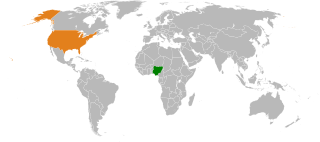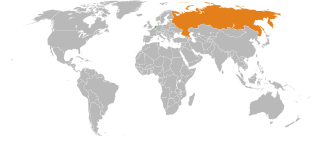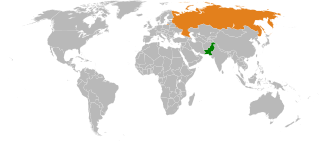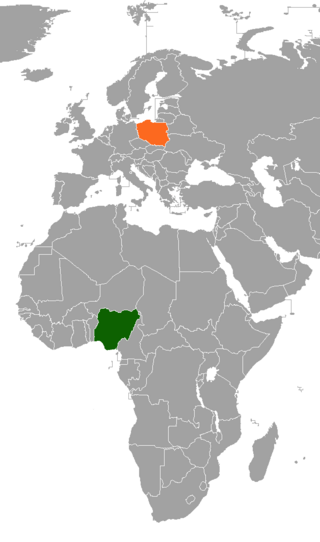
Russia–South Korea relations or Russian–South Korean relations are the bilateral foreign relations between Russia and South Korea. Modern relations between the two countries began on September 30, 1990. Due to the 2022 Russian invasion of Ukraine, relations became very tense after South Korea imposed sanctions against Russia. Russia placed South Korea on a list of "unfriendly countries", along with Taiwan, Japan, Singapore, the United States, European Union members, NATO members, Canada, Australia, New Zealand, Norway, Switzerland, Micronesia and Ukraine.

Spaso House is a listed Neoclassical Revival building at No. 10 Spasopeskovskaya Square in Moscow. It was originally built in 1913 as the mansion of the textile industrialist Nikolay Vtorov. Since 1933, it has been the residence of the U.S. Ambassador to the Soviet Union, and since 1991, to the Russian Federation. The building belonged to the USSR and later Russia and, under the 1985 lease contract, the U.S. was supposed to pay 72,500 Soviet roubles per year, which by 2001 was the equivalent of about $3, which the U.S. had failed to pay in 1993. In 2004, the two sides concluded a new 49-year lease that was said to be based on a joint assessment of the property's value; the rent rate was not disclosed.

Brazil–Russia relations have seen significant improvement in recent years, characterized by increased commercial trades and cooperation in military and technology segments. The two countries maintain important partnerships in areas such as space, military technologies, and telecommunications.

Russia–Vietnam relations date back formally to 30 January 1950, when the Union of Soviet Socialist Republics established an embassy to North Vietnam. The Soviet Union was one of the first countries in the world to recognize and formally establish diplomatic relations with Vietnam, laying the foundations for strong and cooperative friendship between the two countries.

Bilateral relations between the Federal Republic of Nigeria and the United States of America were formally inaugurated when Nigeria attained its independence from Britain in 1960. In the 21st century, they have entailed an important, if occasionally uneasy, alliance, following a more chequered diplomatic past. Nigeria has traditionally been among the United States's most important partners in Africa, and together the countries' populations account for more than half a billion people.

Brazil–Nigeria relations are the current and historical relations between the Federative Republic of Brazil and the Federal Republic of Nigeria. Brazil and Nigeria maintain a traditional and diversified relationship, with a strong Nigerian influence on Brazilian cultural and social formation. Both nations are members of the Group of 77 and the United Nations.

Russia–Saudi Arabia relations are the bilateral relations between the Russian Federation and the Kingdom of Saudi Arabia. The two countries are referred to as the two petroleum superpowers and account for about a quarter of the world's crude oil production between them.

Netherlands–Russia relations is the relationships between the two countries, the Kingdom of the Netherlands and the Russian Federation. Russia has an embassy in The Hague, and the Netherlands has an embassy in Moscow, a consulate in Saint Petersburg, and an honorary consulate in Yuzhno-Sakhalinsk.

Ethiopia and Russia established diplomatic relations on April 21, 1943. Russia currently has an embassy in Addis Ababa, and Ethiopia has an embassy in Moscow. The Ethiopian ambassador to Russia is also accredited to Armenia, Azerbaijan, Belarus, Georgia, Kazakhstan, Kyrgyzstan, Moldova, Tajikistan, Turkmenistan, Ukraine, and Uzbekistan.

The Soviet Union and Pakistan first established the diplomatic and bilateral relations on 1 May 1948.

The establishment of diplomatic relations between Albania and the Soviet Union happened on April 7, 1924. Both countries were also allies in the Warsaw Pact. Albania has an embassy in Moscow. Russia has an embassy in Tirana.

The Embassy of the Federal Republic of Nigeria in Moscow is the diplomatic mission of Nigeria in the Russian Federation. The embassy is also accredited to Belarus. It is located at №5 Malaya Mamonovsky Pereulok in the Central Administrative District of Moscow. The current ambassador is Abdullahi Yibaikwal Shehu.

Russia–Zambia relations are the bilateral relations between Russia and Zambia.
Abdullahi Mohammed is a retired Nigerian Army major general, who served as chief of staff to presidents Olusegun Obasanjo and Umaru Musa Yar'Adua from 1999 to 2008; National Security Adviser to General Abdusalami Abubakar from 1998 to 1999; Director General of the National Security Organization from 1976 to 1979; and Governor of Benue-Plateau State, Nigeria from July 1975 to February 1976 during the military regime of General Murtala Mohammed.

Lesotho–Russia relations are the bilateral relations between Russia and Lesotho.
Jeremiah Olatunji Otegbeye was a Nigerian politician, trade unionist and medical doctor. Otegbeye hailed from the Yewa community.

Russia–Somalia relations is the bilateral relationship between Russia and Somalia. A Somali Embassy currently operates in Moscow. Russia's embassy in Djibouti represents Russia in Somalia.

The nations of Mexico and Nigeria established diplomatic relations in 1976 and are two regional power nations in Latin America and Africa, respectively. Both nations are members of the Group of 15, Group of 24 and the United Nations.

Nigeria–Poland relations are the bilateral relations between Nigeria and Poland. Both nations are members of the United Nations and the World Trade Organization.

Aleksandr Anatolyevich Churilin was a Soviet and Russian diplomat. He served in various diplomatic roles from 1970 onwards, and was Ambassador of Russia to Romania between 2006 and 2011.




















